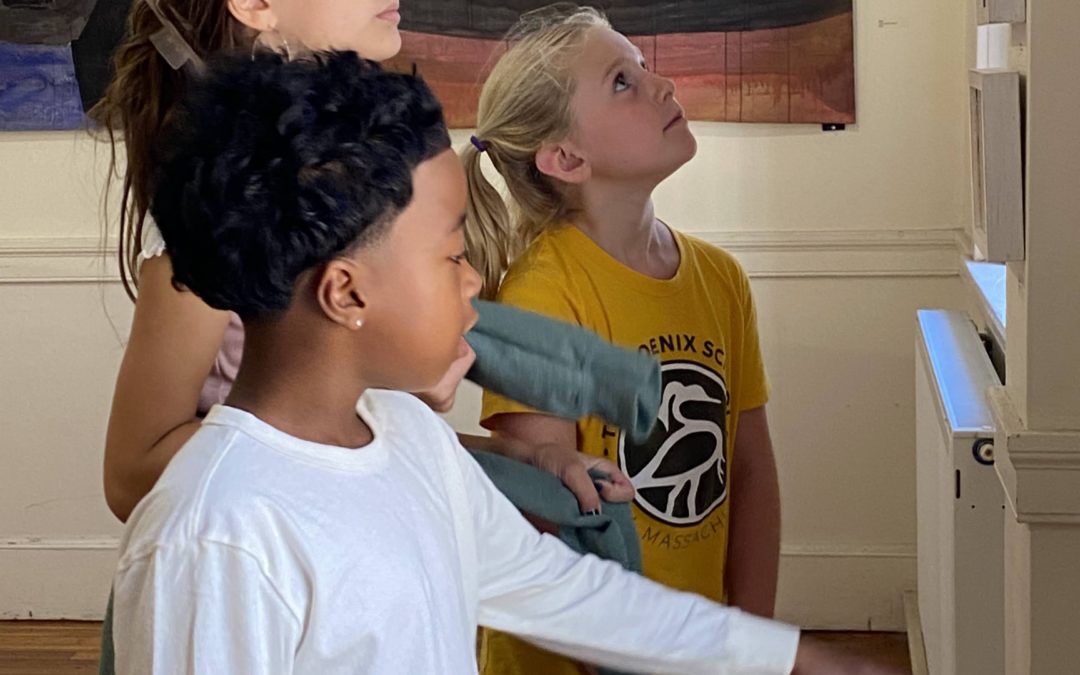
by Mistral Dodson | May 20, 2023 | Blog
One of the biggest advantages of independent private schools like The Phoenix School is the personalized education experience we offer. With smaller class sizes and a curriculum that is tailored to each student’s individual needs, students have the opportunity to receive more individual attention from teachers and to work at their own pace. This level of individualized attention can be critical to a student’s success not just in elementary and middle school, but well into high school, college, and beyond.
One key benefit of this personalized approach is that it helps students develop important skills such as leadership, executive functioning, and time management. By working closely with teachers to set goals and track progress, students learn how to take ownership of their own learning and become more responsible for their academic success. They also have more opportunities to develop leadership skills through group projects and extracurricular activities.
Executive functioning skills, such as planning, organizing, and time management, are also developed through this personalized approach. Students learn how to manage their time effectively and prioritize tasks, which is essential for success in high school and beyond. They also learn how to set goals and break them down into manageable steps, which is a skill that will serve them well throughout their academic and professional careers.
Another advantage of independent private schools like The Phoenix School is that they often offer a more diverse range of extracurricular activities than public schools. This allows students to explore their interests and develop new skills outside of the classroom, which can be critical to their personal and academic growth.
Overall, the personalized education experience offered by independent private schools like The Phoenix School can have a profound impact on a student’s academic success and personal development. By developing important skills such as leadership, executive functioning, and time management, students are better prepared for success not just in elementary and middle school, but throughout their lives.
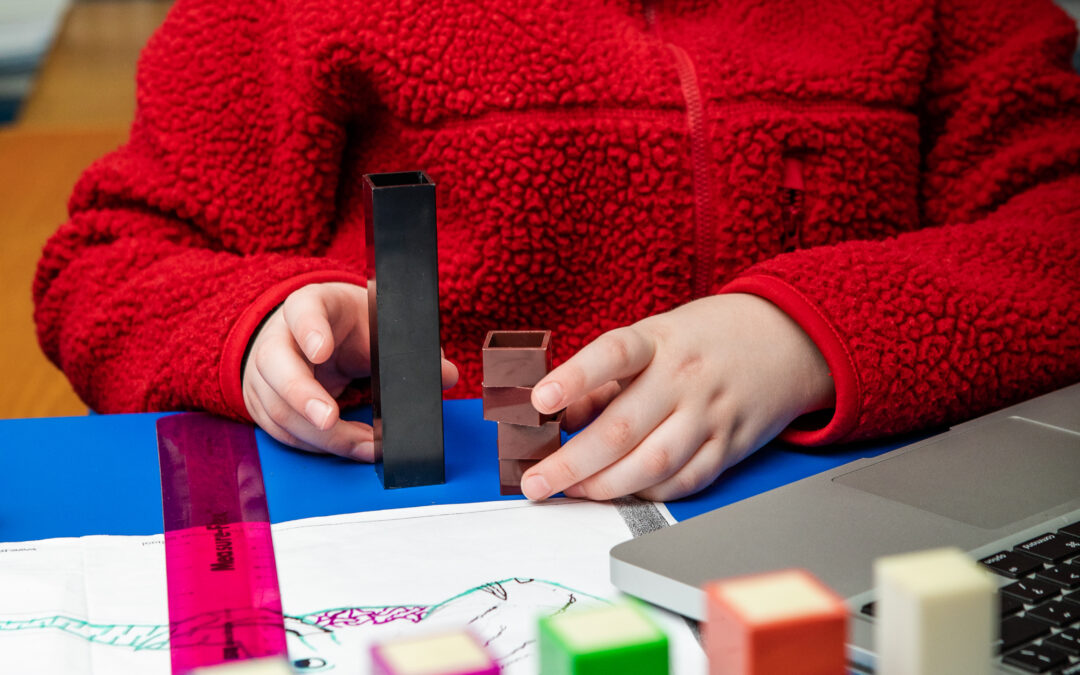
by Mistral Dodson | May 15, 2023 | Blog
Math is everywhere, and it is an essential skill for our everyday lives. From counting money to measuring ingredients, math is involved in just about anything we do. That’s why it’s crucial to teach our children to embrace math and make it a part of their everyday lives.
Recently, at our K-5 school, we decided to challenge our students to design their math problems based on a book we read, “Counting on Fred.” At first, many of our students were overwhelmed and confused by the task, but with a little inspiration and guidance, they began to realize the endless possibilities.
One of our educators, Mike Smith, motivated the students with a simple statement, “Math is wonder, math is creativity, math is everywhere we look, now go and find it!” This encouraged the students to explore their surroundings and think creatively about how they could incorporate math into their everyday lives.
The students started to examine their classrooms for supplies and ideas to create their math problems. They came up with various wonder questions around math, such as how many different ways pegs could fit into the pegboard, how many 2 x 4 lego blocks fit on the tabletop, and how many planks it would take to make a ramp to climb onto the roof.
These wonder questions allowed our students to think outside the box and gain confidence in their math skills. As teachers, we understand that some students love math, while others dread it. However, the “AH HA” moment we witnessed from many of our students today made it all worthwhile.
Incorporating math into our everyday lives can be challenging, but it is essential for our children’s development. We can teach our children to embrace math by encouraging them to explore their surroundings, ask questions, and think creatively. By doing so, we can help our children gain confidence in their math skills and succeed in their future endeavors.
In conclusion, math is not just a subject we learn in school. It is an essential skill that we use in our everyday lives. By encouraging our children to embrace math and think creatively, we can help them develop the skills they need to succeed in their future endeavors.
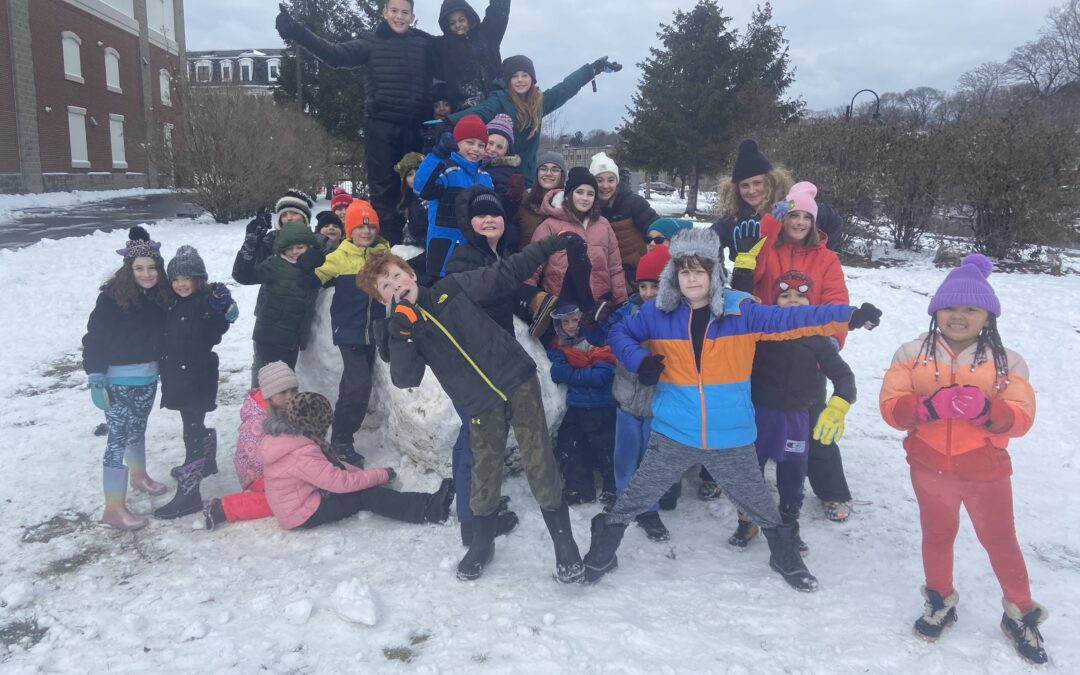
by Mistral Dodson | May 10, 2023 | Blog
Recess is not just a time for kids to blow off steam; it’s an essential part of their overall well-being. It’s a break in their day that allows them to recharge and refocus, and it’s especially crucial for kids in elementary and middle school.
There’s a lot of debate surrounding the necessity of recess, with some educators and parents arguing that it’s a waste of time and takes away from important academic instruction. However, studies have consistently shown that recess actually has a positive impact on academic performance. In fact, a study by the American Academy of Pediatrics found that “recess time should be considered an essential part of the school day, like lunch or math class.”
But it’s not just academic performance that’s improved by recess. Kids also benefit from the physical activity, socialization, and creative play that recess provides. It’s a chance for them to run around, play games, and engage in imaginative play with their peers. It’s a time when they can learn important social skills like communication, cooperation, and conflict resolution.
Unfortunately, not all schools prioritize recess, and some have even eliminated it altogether. This is a concerning trend, as it deprives kids of an essential part of their day. Without recess, kids may struggle to focus in class, experience more stress and anxiety, and miss out on important opportunities for physical activity and socialization.
At our private school, we understand the importance of recess, which is why we make it a priority for our students. We may not have giant sports fields or fancy playgrounds, but we believe that creativity and resourcefulness can lead to unexpected adventures and opportunities. We take our students to local community locations like High St Park, the Salem Commons, and the Salem Bike Path for their recess and sports experiences.
By taking our students out of the traditional school setting, we not only give them a chance to move their bodies and engage in creative play, but we also teach them important life skills like adaptability, problem-solving, and community involvement. We show them that you don’t have to have access to everything right in your schoolyard, but that you can find opportunities for fun and learning in your local community.
In conclusion, recess is not just a frivolous break in the day; it’s a crucial part of a child’s overall well-being. Kids need the chance to move their bodies, engage in creative play, and socialize with their peers. Without recess, they may struggle in school and miss out on important opportunities for growth and development. As educators and parents, it’s our responsibility to prioritize recess and ensure that all kids have access to this essential part of their day.
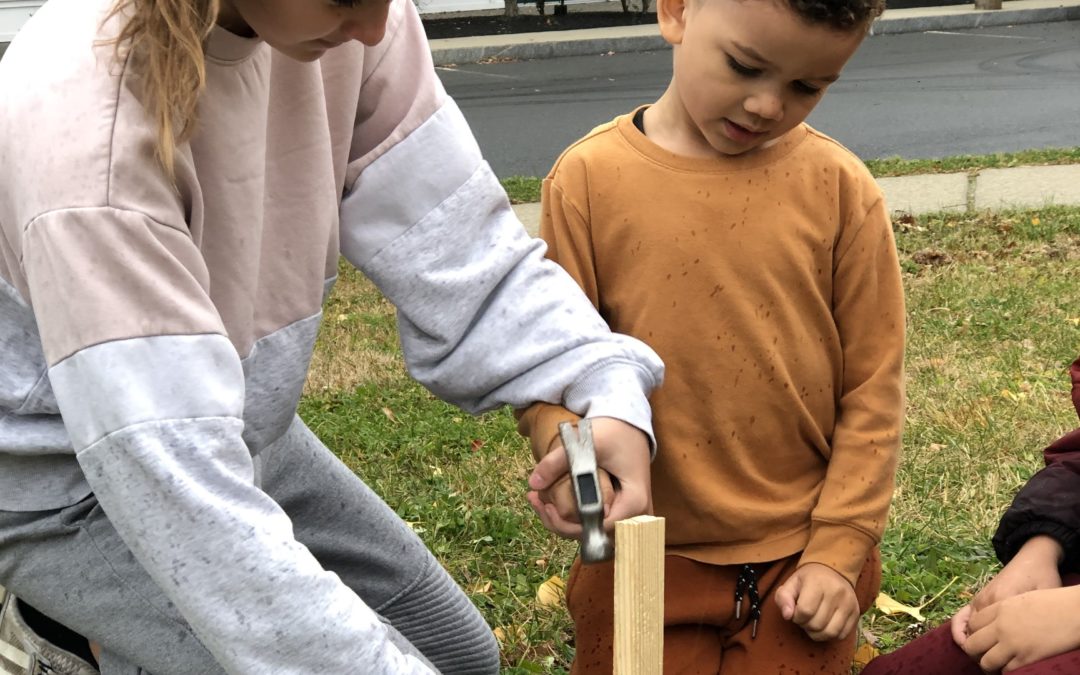
by Mistral Dodson | May 6, 2023 | Blog
As adults, we often think of leadership and collaboration as skills that are developed in the workplace or through formal training. However, the truth is that these skills can be nurtured from a very young age. In fact, they often begin in kindergarten.
In a K-8 schoolroom, five-year-olds are eager to find a role for themselves. They start with small steps, such as helping each other find items in the classroom or working together to complete a puzzle. These seemingly insignificant interactions may seem insignificant, but they are laying the foundation for essential skills like leadership and collaboration.
As students progress through the grades, they are given more opportunities to develop these skills. In the third to fifth grades, they become “packing partners,” responsible for a younger partner at the beginning and end of the day. They may also be reading partners or leaders of project learning teams.
By the upper grades, students are expected to take on more significant leadership roles. They become team leaders, teachers of after-school courses, and coordinators of all-school teams for projects like Revels or problem-solving initiatives. By the time they reach eighth grade, they are the leaders of the school and represent it in the local community.
This approach to developing leadership and collaboration skills is very different from the traditional one-day-a-week “Reading Buddies” program. Instead of a limited opportunity to work together, students are given consistent opportunities to learn and grow together throughout their academic careers.
By starting early and providing ongoing opportunities for leadership and collaboration, schools can help students develop essential skills that will benefit them for the rest of their lives. These skills will not only help them in the workplace but also in their personal relationships and in making a positive impact on their communities.
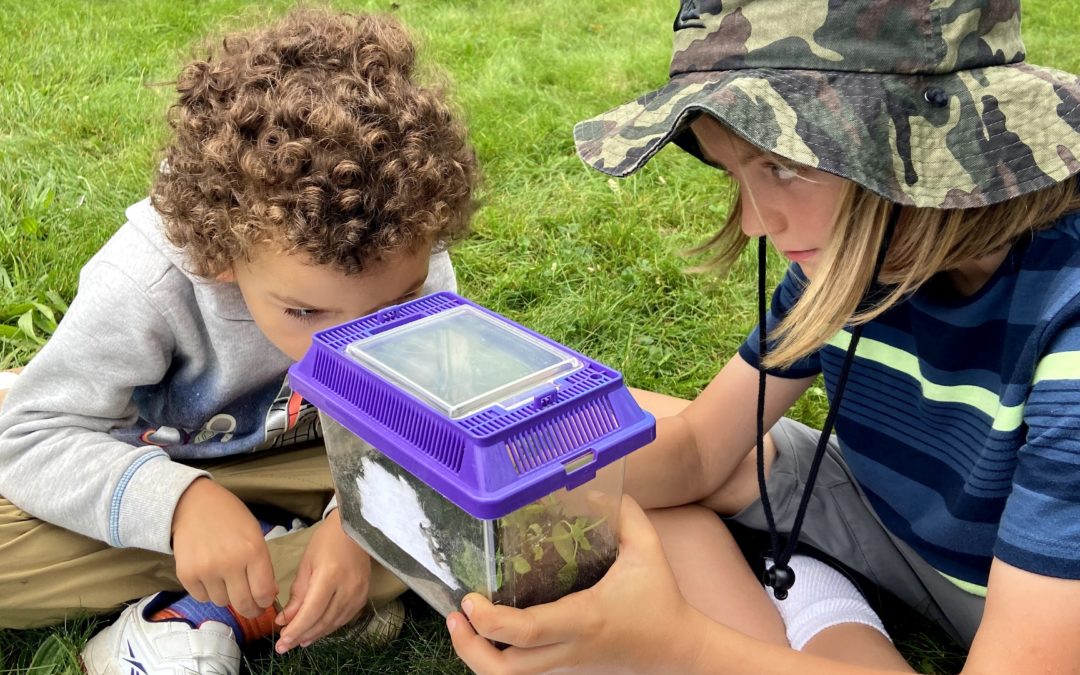
by Mistral Dodson | May 3, 2023 | Blog
As adults, we often think of leadership and collaboration as skills that are developed in the workplace or through formal training. However, the truth is that these skills can be nurtured from a very young age. In fact, they often begin in kindergarten.
In a K-8 schoolroom, five-year-olds are eager to find a role for themselves. They start with small steps, such as helping each other find items in the classroom or working together to complete a puzzle. These seemingly insignificant interactions may seem insignificant, but they are laying the foundation for essential skills like leadership and collaboration.
As students progress through the grades, they are given more opportunities to develop these skills. In the third to fifth grades, they become “packing partners,” responsible for a younger partner at the beginning and end of the day. They may also be reading partners or leaders of project learning teams.
By the upper grades, students are expected to take on more significant leadership roles. They become team leaders, teachers of after-school courses, and coordinators of all-school teams for projects like Revels or problem-solving initiatives. By the time they reach eighth grade, they are the leaders of the school and represent it in the local community.
This approach to developing leadership and collaboration skills is very different from the traditional one-day-a-week “Reading Buddies” program. Instead of a limited opportunity to work together, students are given consistent opportunities to learn and grow together throughout their academic careers.
By starting early and providing ongoing opportunities for leadership and collaboration, schools can help students develop essential skills that will benefit them for the rest of their lives. These skills will not only help them in the workplace but also in their personal relationships and in making a positive impact on their communities.
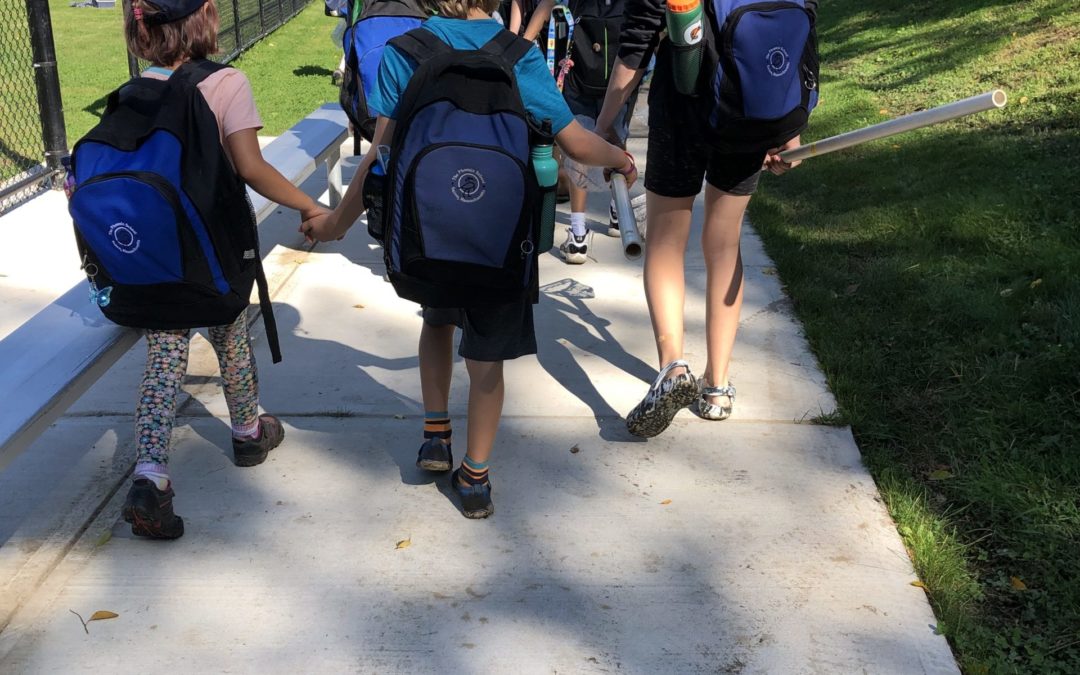
by Mistral Dodson | May 1, 2023 | Blog, Social Emotional Learning
At The Phoenix School, we believe that education is not just about academic achievement but also about personal growth and development. Our goal is to create an environment where students can flourish both academically and socially, and where they are prepared to succeed in life beyond the classroom.
One of the ways we achieve this is through our emphasis on social-emotional learning (SEL), mindfulness, and character education. SEL is the process of acquiring the knowledge, attitudes, and skills necessary to understand and manage emotions, set and achieve positive goals, feel and show empathy for others, establish and maintain positive relationships, and make responsible decisions.
Unlike many schools where SEL is taught as a separate program or class, we embed it into our everyday practices at The Phoenix School. Our flexible learning environment allows for “in the moment” learning, where students can seamlessly develop these essential skills through interaction with their multi-aged partners, peers, and teachers.
Our students are encouraged to communicate, collaborate, and work together to solve problems, develop critical thinking skills, and understand the importance of empathy and teamwork. By providing a supportive learning environment where everyone feels valued and respected, our students are equipped with the necessary social-emotional skills to succeed in life beyond the classroom.
Our experienced teachers use a variety of strategies to promote SEL development in our students. They work closely with students to create a safe and supportive learning environment where students can express themselves and explore their emotions.
We believe that developing these social-emotional skills is essential for success not just in school but also in personal and professional life. Our students leave The Phoenix School with a strong foundation in empathy, critical thinking, and problem-solving, which are all essential skills for success in the 21st century.
If you are looking for an educational environment that prioritizes personal growth and development, we invite you to learn more about our social-emotional learning program by visiting our website or scheduling a tour. Thank you for considering The Phoenix School as a potential option for your child’s education.






